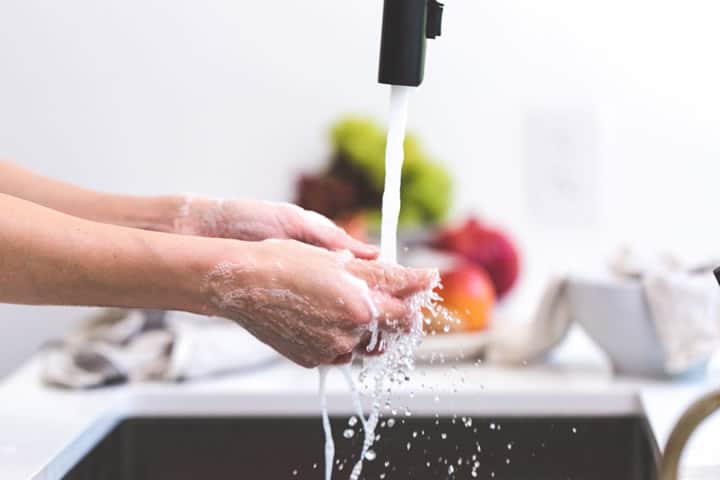Parents across Australia aim to feed their children a sound diet to boost their health and well-being, but if your kitchen isn’t up to scratch in terms of cleanliness, the risk to your family’s health could be significant. Tidiness is just one key factor in keeping injuries at bay. Did you know that over half of all injuries to kids in Australia happen in the home, and that the stairs and kitchen areas are two common accident spots? Another key pillar of good health is hygiene. You use your kitchen to prepare healthy protein shakes, smoothies, and savoury foods, so surfaces should be completely clean and free of bacteria.
Germs Commonly Found In Kitchens
Norovirus, salmonella, campylobacter, and other bacteria, commonly found in raw meat and chicken, can cause severe health problems for children and adults alike, with symptoms of an infection including diarrhoea, painful stomach cramps, vomiting, and fever. Often, these bacteria and viruses are passed through unsuspected items in the kitchen – including kitchen towels. One study published in the journal Food Protection Trends found that towels were the most contaminated of the many contact surfaces tested. The researchers found that salmonella grows on cloths which are stored overnight, even after the latter are washed in the sink. Researchers therefore recommend washing cloths immediately, or better yet, using paper towels and throwing them away immediately after use.
Keeping Your Kitchen Clean
In addition to washing towels daily or replacing them with paper towels, other steps to take include using a dishwasher instead of sponges (or warming a sponge up in a microwave for half a minute daily to kill germs); using food thermometers to ensure food is well cooked; and separating raw meats from other ingredients in the fridge. Clean bench tops with a disinfectant spray. Be vigilant of where you are placing raw foods when you’re handling them, making sure to clean any area that may have touched these foods, and washing your hands frequently.
Keeping Kitchens Mould-Free
Household mould can cause allergic reactions and respiratory problems, and black mould can be particularly toxic. Mould tends to build up in moist areas like the basement, bathroom, and kitchen, so in your kitchen, check the cupboards, walls, and windows for signs of mould growth. If you find mould in your kitchen, once you remove it with a special mould cleaner, try to find the cause. A leaking sink, for instance, needs to be fixed to avoid the buildup of humidity. When cleaning mould, use a mask for your nose and mouth, and wear gloves, following product instructions closely. You should also clean your fridge daily and throw leftovers and open packages at least once a week (or earlier if indicated by the manufacturer). When in doubt as to whether or not to throw food, play on the safe side, and eliminate any items you are unsure of.
Tidiness Matters Too
The kitchen is a risk area for injuries because of the many different types of equipment we use in this space. Sharp knives, bottle openers, blenders, and mincing machines are just a few items we use to prepare meals, and these can easily fall on tiny members of the family or end up being used in a dangerous fashion. Proper storage is key so that you can always access appliances without causing clutter on workbenches, kitchen islands, etc. Childproof drawers should be used to keep any electrical devices that can potentially cause injury – including hand mixers, and any device that moves or heats up when plugged.
Keeping your kitchen clean and tiny will help stave off infection and injury. One of the best ways to take a preventive approach to health is to think of where germs might be, and to be vigilant of where you are handling food. Rather than using the kitchen bench top (where towels, utensils, and machines are also located), place raw meat or fish/seafood in a big pyrex bowl while handling it. Clean your kitchen and fridge daily, and forego sponges and towels in for more efficient, sanitary methods of keeping your utensils and cutlery clean.
This article was written by Jane Munro a health enthusiast and freelance writer.







